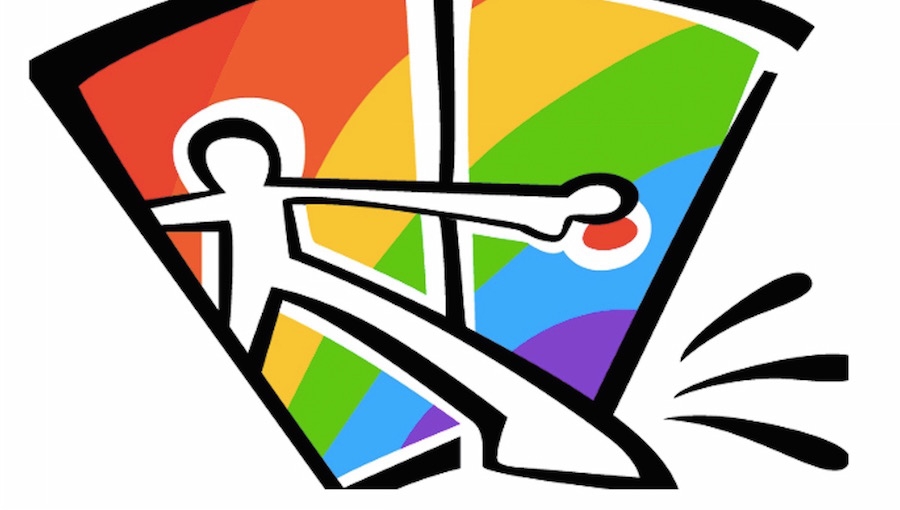Seven years ago I was in a men’s bathroom on the University of Mary Washington campus, changing into women’s clothes. It was National Coming Out Day, and I had decided to celebrate the event by coming out to PRISM, the campus’s local LGBTQ group, and doing so dressed as the woman I knew I was. While it seems silly to me now, back then I was so afraid to be seen in public dressed in the clothes I wanted to wear and too afraid to even use the ladies’ room to change outfits. In spite of my fear, I had the courage to march out of that bathroom and tell a room full of people my story.
I’m transgender. Born with a male body but I identify as a woman. I knew from an early age that I was “different” but didn’t hear the term transgender until I was in college. Even then, it took me months of playing around with my gender presentation before the pieces clicked together and I accepted who I was. In a way you could say I had to come out to myself before I could come out to anyone else.
Coming out to my family and closest friends remains the hardest thing I’ve ever done in my life. And I did so in so many different ways. One friend I came out to right after he woke up, before even his first cup of coffee. Another knew I had news to share for days and he thought I was going to tell him I was dying going into that coming-out conversation. I made both of my parents cry with the news, one who became supportive and one who would do everything in his power to stop me from transitioning for years before accepting me for who I am.
Coming out can be a difficult process for both sides. I vividly remember the anxiety I felt as I laid out how I felt and identified myself, to those first few people. My heart racing as I stopped talking and waited for that response that determined whether this person would remain a part of my life or not. On the other side, there’s the surprise, the mind struggling to adapt and update the image of the person who came out. And there’s a lot of expectation placed on that response in the moment. At least those were my earlier experiences. One of the things I’ve learned over the years is that the LGBTQ person who starts that conversation, sets the tone of it. Nowadays, when I come out to someone I do so fairly casually, my identity is so second nature. And you know what, that makes it a casual, welcoming conversation for the other side, too.
Given I’m well established as a woman at this point, why do I need to keep coming out? I’m of the opinion that visibility is vital to the acceptance of the LGBTQ community, as people who personally know someone who is LGBTQ are more far likely to be sympathetic to the group. Only by being “out and proud” can the LGBTQ community be seen, heard, and accepted as a natural way of life. Case in point, love her or hate her, look at what Caitlyn Jenner has done for the transgender community. Transgender was a word just starting to grace people’s lips and then she came out. One visible celebrity coming out shook the nation, and now I’m hard pressed to go a day without reading 10 stories arguing for and against transgender rights. Visibility matters.
And something that matters too is not being visible 100% of the time. I like educating people about my experiences as a transgender woman. I’m proud that I’ve helped promote LGBTQ rights, have helped a few people through transition, and created some more allies for the community. But there are days where I don’t want to be a spokesperson. Days where I just want to take a break, go through my day, and be seen as a woman first. And there’s nothing wrong with that. Being visible can be exhausting, and every LGBTQ person is more than their sexual orientation or gender identity.
And visibility has its risks, too. Nineteen transgender men and women have died in the United States thus far in 2016. Correction, 19 transgender men and women have been murdered in the U.S. this year. I’ve had my life threatened more times than I can count on my fingers, and I’m not alone. That’s another reason why visibility is a choice on any given day, in any given moment. And whether to disclose sexual orientation or gender identity is up to the individual. If you’re a friend or family member of someone who is LGBTQ, don’t necessarily lead with that information when talking to someone else about your LGBTQ loved one. You could, inadvertently, place them in danger. Always check before divulging that kind of information. How visible and open someone wants to be varies from person to person.
National Coming Out Day is a day to be visible and vocal as a gay, lesbian, bisexual, transgender, or queer person, or an LGBTQ ally. It’s a day where the community is there to support you.
If you’d like more information about National Coming Out Day, including a solid set of resources to help with coming out or to be a “straight supporter,” visit HRC’s page on the holiday. If you’d like more info on my story and my experiences as a transgender woman working in the comic book industry, give this interview I recorded with Fanbase’s own Bryant Dillon a listen.

